Befriending the Nervous System:
Strategies for Trauma, Sensory Processing, and Developmental Wounds
Nervous System Strategies Certificate Level 1
with Linda Thai, LMSW, ERYT-200
CEs available. Get full information here.
Dear Therapist,
Trauma is all too prevalent.
It comes to us from many places and impacts us in many ways.
For the trauma therapist, it can be tricky to untangle the symptoms and narratives of the trauma survivor to find effective treatments.
Enter: Linda Thai.
Linda is an expert in complex trauma and somatic approaches to therapy. She specializes in areas of childhood adversity, colonization, intergenerational refugee trauma, and social justice. She integrates her experience as a yoga and meditation teacher, grief tender, addiction counselor, and international refugee.
Through these lenses, Linda has created a multi-faceted approach to trauma treatment that encompasses the nervous system, storytelling, sensory processing, parts, interrelational dynamics, and attachment in her new course, Befriending the Nervous System: Strategies for Trauma, Sensory Processing, and Developmental Wounds.
Linda is superb at integrating and synthesizing information and modalities to provide a comprehensive body of knowledge, skills, and tools for any therapist working with trauma survivors.
Join Linda Thai, an inspiring collaborator, infiltrator, cross-pollinator, and agent of change in Befriending the Nervous System: Strategies for Trauma, Sensory Processing, and Developmental Wounds.

When you complete this course, you'll have a toolkit to:
- Create a holistic approach to managing chronic stress that addresses past, current, and future-oriented responses.
- Employ techniques to complete the stress response cycle to facilitate healing.
- Identify autonomic nervous system interrelational dynamics so you can notice, name, and navigate transference and countertransference.
- Recognize the wounds of racialized identity trauma so you don’t risk mis-diagnosing BIPOC clients.
- Bring the nervous system back into regulation for both you and your clients.
Warmly,
Academy of Therapy Wisdom
Linda Thai, LMSW
In this course, you will discover:
- How to recognize different survival-oriented responses to stress or trauma so you know what nervous system state you are working with
- The correlation between traumatic stress, trauma triggers, and DSM diagnoses
- How to understand and contextualize the common reactions generated by the nervous systems of your clients so you understand your clients' behaviors
- The 8 sensory systems and the typical sensory seeking and sensory. avoidance behaviors for each of the sensory systems
- How to differentiate between SPD, ADHD, autism, and CPTSD so you're treating the right thing
- How to create more effective bottom-up resourcing for traumatized clients so you can implement more effective solutions
Befriending the Nervous System in Trauma Treatment
Untangling the nervous system is key to understanding your client’s stress responses. Instead of looking at it like a tangled ball of yarn, you can approach it as a source of incredible information and clues. In Befriending the Nervous System: Strategies for Trauma, Sensory Processing, and Developmental Wounds, you’ll learn to observe behavioral responses, track the nervous system, and interpret sensory systems to create a holistic picture of your client’s trauma landscape. Then you can develop an integrated approach using somatics, parts work, neurobiology, and attachment theory to facilitate unique trauma healing.

““I highly recommend anything she does”
“Linda is a brilliant and generous teacher and mentor who is both wildly intelligent and deeply embodied. Her mere presence has allowed me to feel a deep sense of belonging and acceptance. Learning from Linda has widened my perspectives on the roots and effects of collective, intergenerational, historical, and individual trauma as well as the varied ways of healing. I highly recommend anything she does, not only for the plethora of information she shares but also for the experiences of connection that she creates.”
— Abby Wyers
Unlock the Power of the Nervous System as a Guide for Traumatic Healing with Linda Thai’s Expertise
This course shows you how to use the nervous system as a trusted ally to decode your client’s trauma responses, and teaches you the tools to regulate and support your client holistically.
Depathologize and Destigmatize Your Client’s Survival Strategies
- Distinguish between reactive and proactive preventative survival-oriented responses so you understand your client’s stress-response behaviors.
- Develop a holistic approach to conceptualizing chronic stress.
- Recognize the connection between traumatic stress, trauma triggers, and DSM diagnoses.

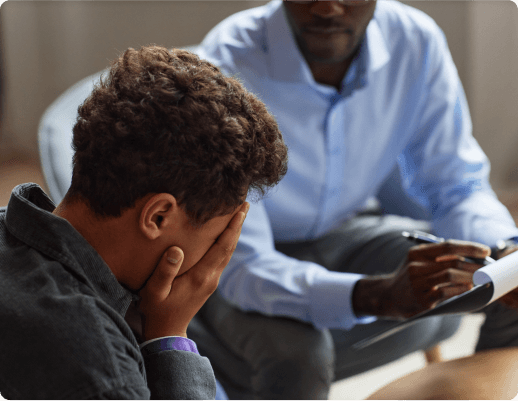
Build a Repertoire of Resources to Create Stabilization in Your Clients’ Lives
- Understand the autonomous nervous system states so you can work with them rather than against them.
- Learn techniques to complete the stress response cycle.
- Use strategies for supporting each of the sensory systems.
- Master techniques to bring the nervous system back into regulation.
Nurture Competence and Confidence in Your Own Inner Wisdom
- Maximize your capacity for discernment so you have a broader and truer picture of yourself and your clients.
- Develop the space for trust that happens in your interactive sessions.
- Care for yourself during sessions so you can role model this for your clients.
- Reflect on your enhanced outcomes to build your confidence.

By the end of the course, you'll have brain-body-nervous system-based techniques so your clients can adopt self-regulation strategies for more healthy choices.
Ready to Enhance Your Outcomes?
“Linda Thai's course was one of the best I attended.”
“Thank you, Linda, for this comprehensive course. [It] taught me the relationship between the nervous system and trauma, exploring how the autonomic responses to danger impact physical and mental well-being. It gave me an even better understanding of how trauma affects the nervous system and provided practical tools for fostering resilience, self-regulation, and healing.”
— Iulia Popescu, Psychotherapist, UK
About Your Instructor

Linda Thai, LMSW,
Trauma and Somatic Therapy Expert
With over 16 years of experience, Linda Thai is uniquely qualified to integrate somatic and holistic approaches for trauma treatment.
Linda is a trauma therapist who specializes in cutting edge brain- and body-based modalities for healing complex developmental trauma. As an educator and consultant, she is gifted with the capacity to contextualize, synthesize, and communicate complex and nuanced issues of identity, mental health and wellbeing resulting from oppressive systems and the invisibilized wounds of racial trauma. Linda is passionate about breaking the cycle of historical and intergenerational trauma at the individual and community levels, and deeply believes in the healing power of coming together in community to grieve.
Born in Vietnam, raised in Australia, and now living in Alaska, Linda is a former child refugee who is not only redefining what it means to be Vietnamese, to be Australian, and to be a United States-ian....she is redefining what it means to be wounded and whole and a healer.
“It's actually making my job easier.”
"This [course] has completely transformed the way I operate as a therapist. It's actually making my job easier and making me much more effective when working with my clients…I've already learned more than I could have imagined…and one of the most amazing things about Linda and this training is the accessibility and inclusivity. I've never heard of such a high quality training at such an affordable cost.”
— Sidney Hays, MSW LISW DARTT
Enroll now in this interactive, holistic, and embodied approach to trauma treatment
what you get in
Befriending the Nervous System:
Strategies for Trauma, Sensory Processing, and Developmental Wounds
This 5-module course gives you practical strategies you can use in your practice to be more inclusive, more effective, and more grounded.
You’ll receive instant access to pre-recorded modules to help you expand your understanding of trauma responses, and then live interactive modules that will build your skills incrementally, including exercises, demonstrations, Q&A, and more.
With each module, you'll deepen your understanding of key functionalities of the nervous system, you'll learn techniques that work with a variety of stress responses, and you'll know how to differentiate between neurodiversity, trauma responses, and patterns that lead to misdiagnosis and treatment.
You'll be so much more effective and confident in your practice.
Here’s what the course includes…
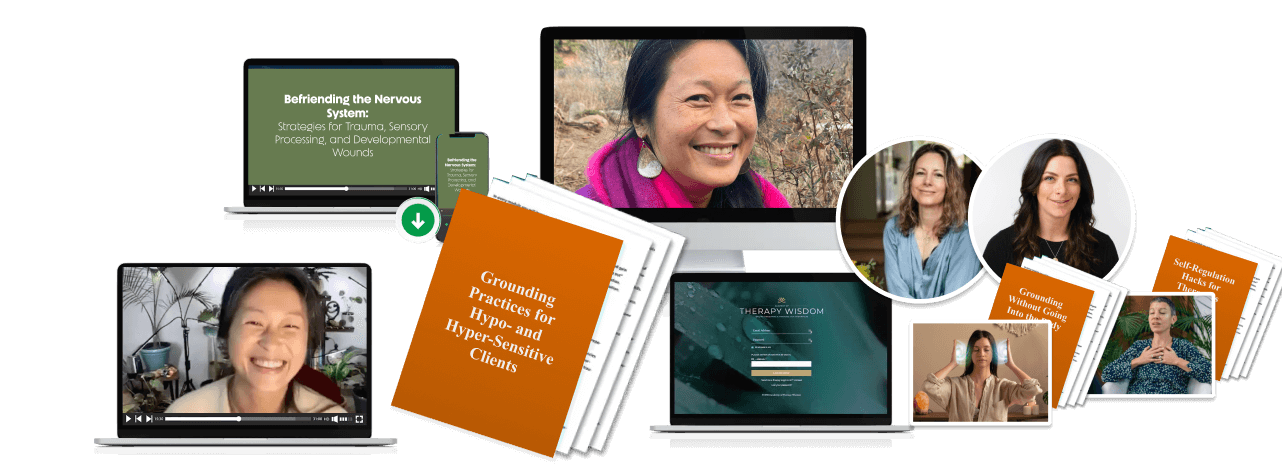
5 In-Depth Training Modules
~5.5 hours of content
Each on-demand module includes presentations, demonstrations, and step-by-step explanations of practices so you can immediately understand and apply your new knowledge.


5 Live Interactive Training Calls
Dive deeper into your understanding of the nervous system, get guided instruction, learn and practice new techniques. and get your toughest questions answered directly by Linda Thai. You’ll gain confidence and competency to start applying your knowledge and skills right away.
Downloadable Course Materials
Audio recordings, transcripts, handouts and more allow you to revisit the material on your schedule. Our dedicated support team is here to help with any questions.

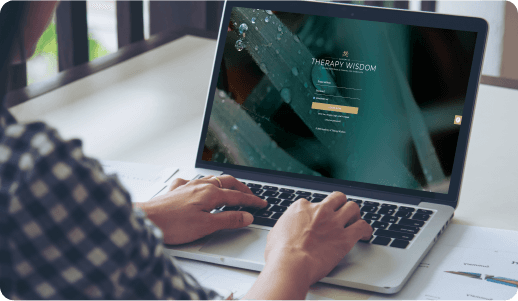
Private Member Dashboard
Get all your course content organized in one easily accessible place to reinforce consistent learning.
+ These Insightful Bonuses…

Interview with Kirkland Newman Smulders
Embodied Metaphor: Integrating Sensory Motor + Movement Practices to Support Healing + Narrative Transformation — An Interview with Mariah Rooney, MSW, LCSW
Mariah Rooney, MSW, LCSW, (she/they) is a trauma therapist who works with individuals, groups, and systems to heal and transform the impacts of trauma and adversity. She helped develop the first ever primary violence prevention program for the Department of Defense (DOD) in collaboration with the American Institutes for Research and the Centers for Disease Control (CDC), and co-founded Trauma-Informed Weight Lifting, an innovative nonprofit program that is now a part of the Center for Trauma and Embodiment at the Justice Resource Institute.
Leveraging the wisdom of the body and the power of the stories we tell, Mariah will discuss ways in which embodied narratives become predictors for how clients (and all of us humans) see themselves, interact with others, and interact with the world. Linda & Mariah will explore how research in developmental trauma and sensory processing can transform the embodied narratives our clients carry from their histories into empowered stories for their futures.


The Impact of Retained Primitive Reflexes on the Sensory Systems — An Interview with Tracy Stackhouse, MA, OTR
Tracy Murnan Stackhouse, MA, OTR is the co-founder and executive director of Developmental FX (DFX) in Denver, Colorado. She is a leading pediatric occupational therapist (OT) involved in clinical treatment, research, mentoring, and training regarding OT intervention for persons with neurodevelopmental disorders, especially Fragile X Syndrome and autism. Tracy focuses on incorporating trauma-informed care, Theraplay, and interpersonal neurobiological/ relationship-based approaches into her work.Tracy spends many hours a month mentoring clinicians from around the world to improve their clinical reasoning skills.
In this presentation, Tracy Stackhouse will teach us about primitive reflex patterns and how to address them with movement. She’ll describe the protective patterns that can underlie the retention of primitive reflex patterns (which we are supposed to outgrow by twelve months of age), and how this then impacts the sensory systems, nervous system, and muscular skeletal system in such a way that presents as sensory challenges and neurodivergent traits.
Grounding Practices for Hypo- and Hyper-Sensitive Clients
A PDF worksheet provides sensory grounding ideas for hypo-sensitive (sensory seekers) and hyper-sensitive (sensory avoiders) individuals.
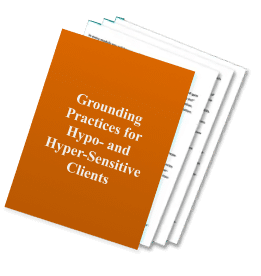
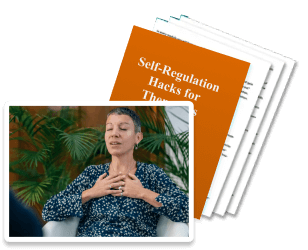
Self-Regulation Hacks for Therapists
This video and PDF set will show you easy ways to immediately self-regulate during and between client sessions.
Grounding Without Going Into the Breath
A unique look at self-regulation techniques that are not based on breathing techniques. Linda shares these exercises in a video and handy PDF format. Some of these techniques do not even require going into the body!

By the end of the course, you'll be able to provide cutting edge trauma treatment especially tailored for neurodivergent individuals.
Don't just take our word for it. Enroll risk-free today and see the
incredible transformation in your skills and practice.
“Linda is a fearless and tender trailblazer”
“Linda is a fearless and tender trailblazer for those yearning to integrate intergenerational traumas…”
— Tina Tin

our courses are
At the intersection of psychotherapy, spirituality, and social change
We believe learning should challenge you and change you.
“[Linda] opened my world.”
"[Linda] opened my world and brought together decolonisation, trauma, intergenerational trauma and how it affects all of us with such clarity and compassion that everyday I am grateful for [her]."
— Siobhan Shiels
Finally, connect all the pieces of neuroscience and somatics to create a cutting-edge approach to heal trauma and developmental wounds.
Sign up today and take advantage of the opportunity to learn from Linda Thai live in this course.
here’s what you’ll learn in
Befriending the Nervous System:
Strategies for Trauma, Sensory Processing, and Developmental Wounds
Linda designed each on-demand video module to build your nervous system and sensory processing knowledge bit by bit. Plus, supplemented by five live calls, you'll create a storehouse of information, insights, and new techniques each week to integrate into your work. Each live call will take you deeper into the material with Linda’s guidance, demonstrations, and answers to your questions.
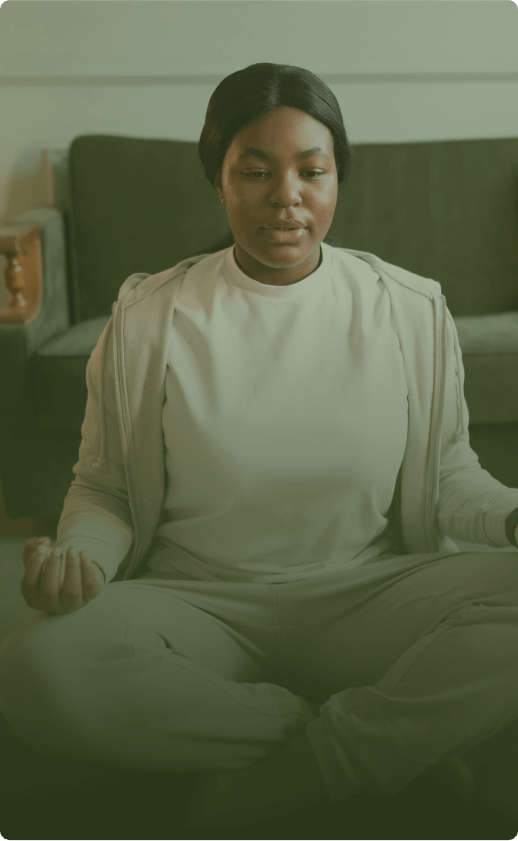
module 1
Traumatic Stress and the Nervous System: Techniques for Stabilization
Video Module + Session 1 on April 30, 2024 — 10am PDT / 1pm EDT / 6pm BST
This module covers the impact of acute and chronic perceptions of threat on the nervous system. We’ll look at how the psyche adapts to create future-oriented survival strategies that guide responses in the present, how that turns into autonomic nervous system dysregulation, and how it can present in various DSM diagnoses. You’ll gain a perspective that depathologizes and destigmatizes the symptoms and experiences of clients so you can reframe the ways in which nervous system dysregulation may be expressed as mental health symptoms.
You will learn:
- The neuroception of danger and life threat.
- How to distinguish between reactive or proactive survival-oriented responses.
- The find response to trauma.
- A more holistic approach to conceptualizing chronic stress.
- The relationship between traumatic stress, trauma triggers, and DSM diagnoses.
Beyond Window of Tolerance: State Creates Story for Each of Our Parts
Video Module + Session 2 on May 7, 2024 — 10am PDT / 1pm EDT / 6pm BST
In this module, you’ll develop a solid understanding of the three main branches of the autonomic nervous system so you can normalize and contextualize the nervous systems of your clients.
We’ll discuss the intersection of trauma responses, parts work, and Structural Dissociation of the Personality Theory to create more effective bottom-up resourcing for traumatized clients.
You will learn:
- The most common autonomic nervous system myth.
- Six techniques to complete the stress response cycle.
- The three blended autonomic nervous system states.
- Four common autonomic nervous system loops.
- The common narratives, emotions, needs, and fears generated by each nervous system state.

module 2

module 3
Sensory Processing Differences: The Confluence of ADHD, Trauma & Autism
Video Module + Session 3 on May 14, 2024 — 10am PDT / 1pm EDT / 6pm BST
This module covers the five common sensory systems and the three hidden sensory systems. We’ll discuss sensory differences and preferences, Sensory Processing Disorder, and the confluence between sensory system differences, ADHD, Autism and complex developmental trauma. You’ll have a working knowledge of sensory differences, the intersection of trauma responses, and innate differences in neuro-processing.
You will learn:
- The five main sensory systems and the three hidden sensory systems.
- Different ways of sensory seeking and sensory avoidance for each of the sensory systems.
- Three strategies for sensory seekers and for sensory avoiders for each of the sensory systems.
- The overlap of SPD, ADHD, Autism, and CPTSD.
Transference & Countertransference, Relational Re-Enactments, and the Nervous System
Video Module + Session 4 on May 21, 2024 — 10am PDT / 1pm EDT / 6pm BST
In this module, Linda will cover the interrelational dynamics that emerge in the therapeutic relationship as a result how each person’s unique history and experiences has shaped their nervous systems and their relational strategies. With this understanding, you’ll be more effective in noticing, naming, and navigating transference and countertransference.
You will learn:
- How to recognize autonomic nervous system transference and countertransference.
- The sympathetic nervous system-oriented “satisfactions of the ego” and the drama triangle.
- Common relational dynamics when working with survivors of complex developmental trauma.
- The window of capacity: from compassion satisfaction to compassion fatigue to burnout.
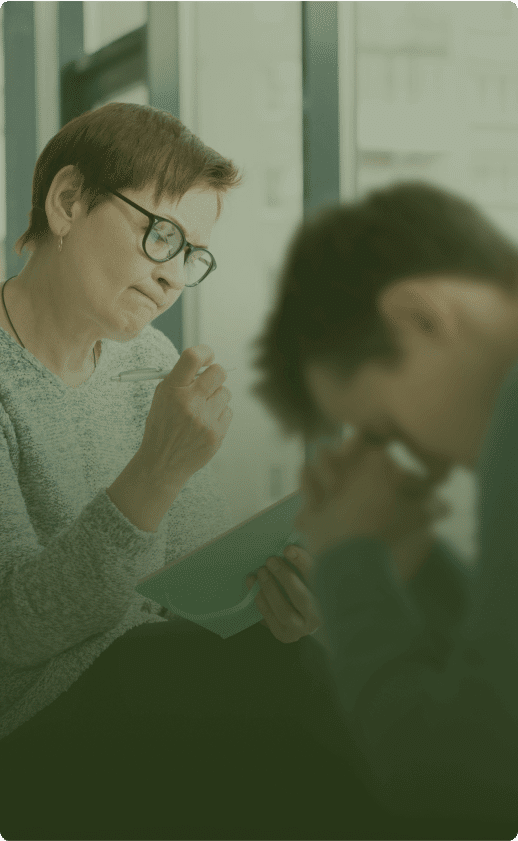
module 4

module 5
The Missing Experiences of Development
Video Module + Session 5 on May 28, 2024 — 10am PDT / 1pm EDT / 6pm BST
The final module explores the common experiences, patterns, and characteristics of under-resourced / dysfunctional families and those raised within these family systems. You’ll develop a knowledge base around the conditions that give rise to family-of-origin dysfunction and how children within those family systems adapt so that you can develop skills around ambiguous grief and the missing experiences of development.
You will learn:
- The foundational physical, emotional, and psychological needs of humans.
- Family scenarios that give rise to family dysfunction.
- Common missing experiences of development for those raised within dysfunctional / under-resourced families.
- Adaptive strategies of children raised in under-resourced families.
- The invisibilized wounds of racialized identity trauma and to examine this within the context of complex developmental trauma so that clinicians do not risk mis-diagnosing BIPOC clients.
- Techniques to bring the nervous system back into regulation.
- An expanded concept of secure attachment that encompasses holistic attachment needs.

100% Risk-Free Money-Back Guarantee
We are confident you will learn new skills in this online training. However, if 7 days after the first live call (or 7 days after purchase, whichever is later), you don't believe you will learn anything to apply with your clients, please contact our support team at support@therapywisdom.com and we will give you a full refund, no questions asked.
“It's powerful, healing medicine.”
“You are a gifted synthesizer and space holder, Linda. I appreciate the ways you challenge patriarchal/white supremacy culture in your teaching by locating yourself as someone actively engaged in ongoing learning, healing and sharing knowledge from that place. It's powerful, healing medicine.”
— Lindsay Elin